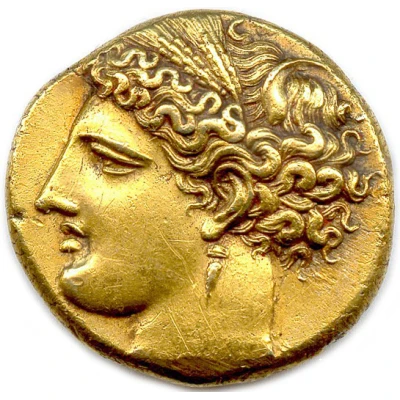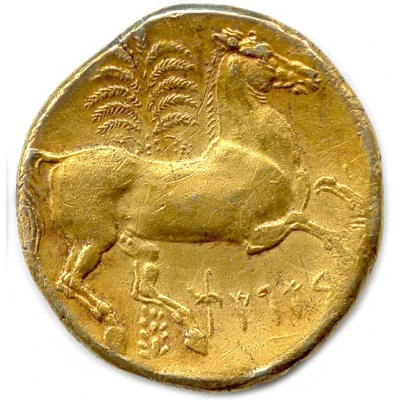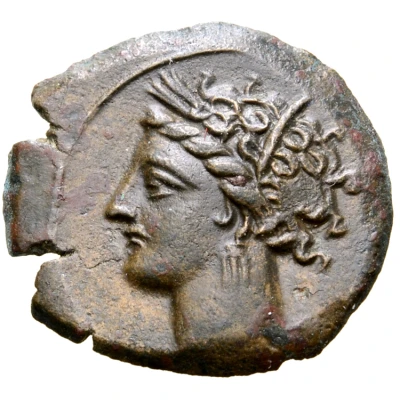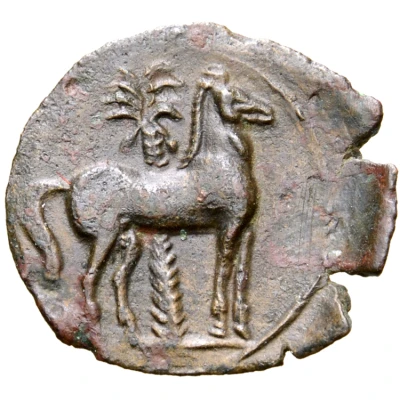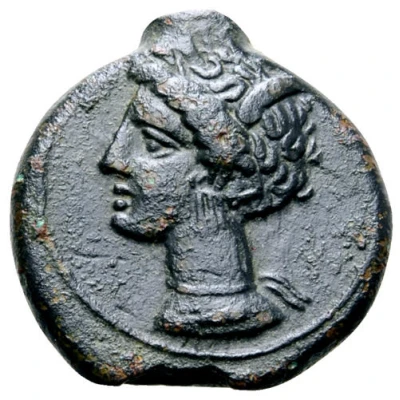
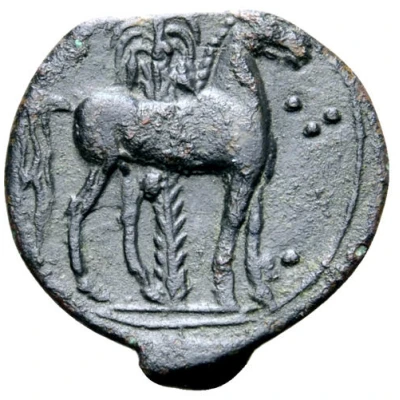

© Roma Numismatics Limited
Æ16 Carthage 400 BC - 350 BC
| Bronze | 2.9 g | 16 mm |
| Issuer | Carthage (Zeugitana) |
|---|---|
| Type | Standard circulation coin |
| Years | 400 BC - 350 BC |
| Currency | Shekel |
| Composition | Bronze |
| Weight | 2.9 g |
| Diameter | 16 mm |
| Thickness | 1 mm |
| Shape | Round (irregular) |
| Technique | Hammered |
| Orientation | Coin alignment ↑↓ |
| Demonetized | Yes |
| Updated | 2024-10-09 |
| Numista | N#48859 |
|---|---|
| Rarity index | 57% |
Reverse
Horse standing right, palm behind.
Edge
Rough
Interesting fact
The Æ16 coin from Carthage (Zeugitana) was used as a form of currency during the period of 400 BC to 350 BC. It was made of bronze and weighed 2.9 grams. Despite its small size and weight, this coin played a significant role in the economy of Carthage, which was a powerful and prosperous civilization in the ancient world. The coin's design likely featured images or symbols that represented the city-state's culture and values. Today, coins like this one are highly sought after by collectors and historians, providing a unique window into the past.
Price
| Date | Mintage | VG | F | VF | XF | AU | UNC |
|---|---|---|---|---|---|---|---|
| ND (400 BC - 350 BC) | - | - | - | - | - | - |
Values in the table are based on evaluations by sales realized on Internet platforms. They serve as an indication only for Æ16 (Carthage) (400 BC - 350 BC) coin.
